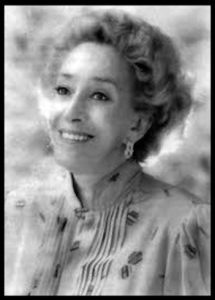
Yolanda Vargas Dulché
*Yolanda Vargas Dulché de la Parra was born on this date in 1926. She was a Mexican writer principally known for creating the comic book character of Memín Pinguín and various telenovelas for Mexican television.
Vargas Dulché was born to parents Armando Vargas de la Maza and Josefina Dulché in Mexico City, along with one sister, Elba. The family moved frequently, and both girls changed schools often. However, this brought Yolanda into contact with various elements of Mexican society, which would later influence her literary characters' creation. These frequent moves included a stay in the United States with her sister for a short time before moving back to Mexico City permanently. To make ends meet, Vargas Dulché worked at several jobs. She collaborated with Emilio Azcárraga Vidaurreta on radio station XEW-AM, singing songs by Agustín Lara, Pedro Vargas, and Toña la Negra and then forming a duet with her sister called "Rubia y Morena," which sang with Agustín Lara.
Her career as a writer began to supplement her income from singing. She began her writing career to supplement income for several newspapers, creating Memín Penguín in 1943. By 1960, she has successfully published several comic books, encouraging her husband to write. The two created successful telenovelas, including Rubí, which has been redone for both television and film. In total, Varga, Dulché published over sixty titles in both Mexico and abroad. While working as a writer, she met her husband Guillermo de la Parra, with whom she had five children, including actress Emoé de la Parra and Manelick de la Parra.
She also has eleven grandchildren, including singers/actors Mané de la Parra and musician Alondra de la Parra. With her husband, she had success as a writer, comic book illustrator, and producer of telenovelas and films. With her own money, she constructed an entire town, homes, schools, etc. in Durango, which still exists. She also created a chain of hotels in Mexico. Yolanda Vargas died on August 8, 1999, after finishing a short autobiography called Aroma del Tiempo.